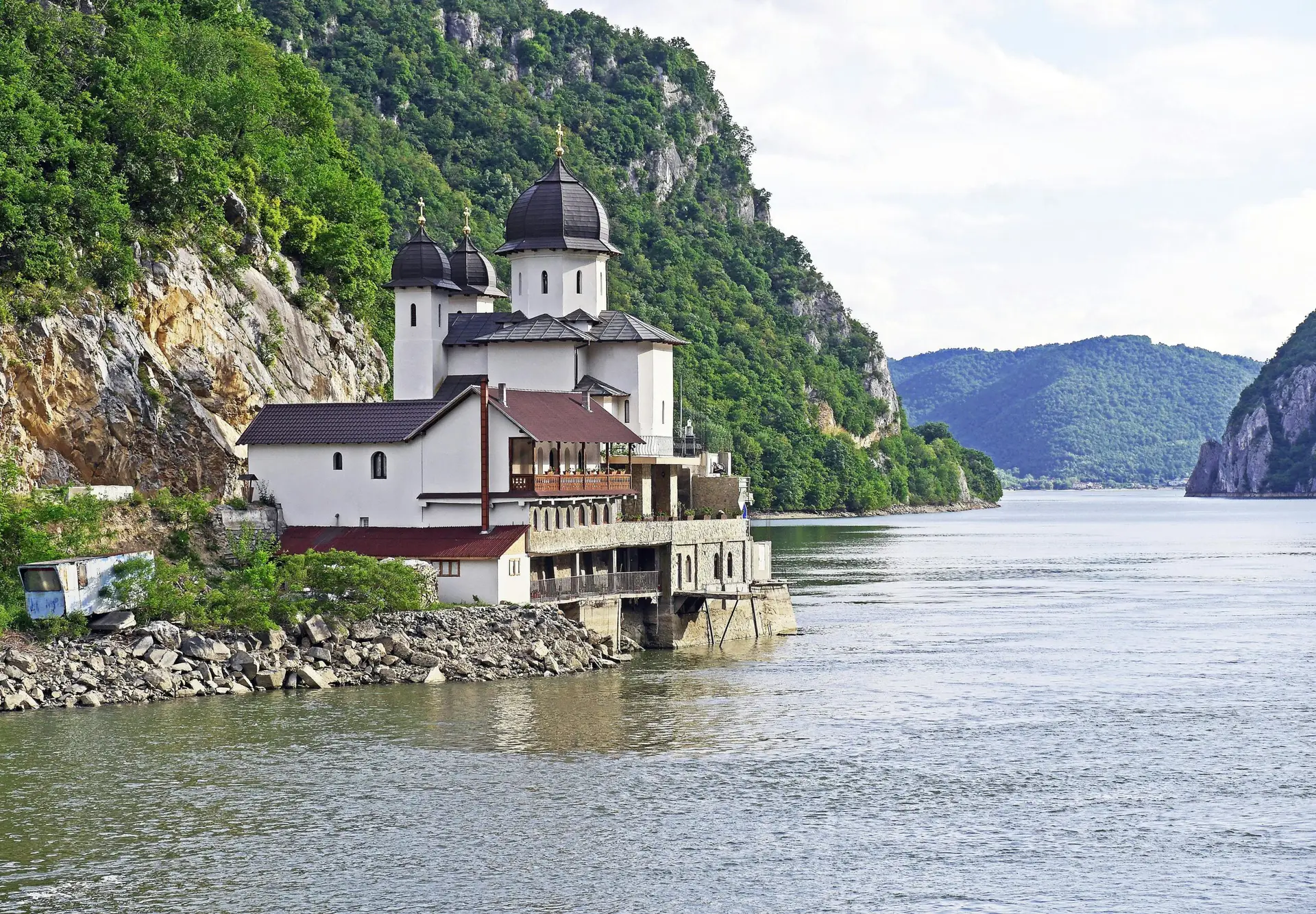For business owners outsourcing to Serbia, understanding Serbian holidays and traditions is more than just a cultural courtesy—it’s a strategic advantage. Serbia’s rich tapestry of customs, shaped by its Orthodox Christian heritage and historical milestones, deeply influences its workforce and business environment.
From the solemn celebrations of Orthodox Christmas to the family-centric Slava and significant national holidays like Statehood Day, these Serbian holidays and traditions dictate work schedules, employee availability, and even workplace morale. By grasping the importance of these cultural events, business owners can better align their operations, foster stronger relationships with Serbian teams, and optimize productivity while respecting local values. This article explores why tuning into Serbian holidays and traditions is essential for successful outsourcing in this vibrant Balkan nation.
Outsourcing to Serbia and Eastern Europe offers businesses cost-effective access to highly skilled professionals. Go Carpathian can help you build an elite international team in Eastern Europe. Interested in knowing more? Schedule a Discovery call with a recruiting specialist.
This article will explain the value of Serbian holidays and traditions for business owners. We will also list all the important holidays in Serbia and share practical tips for aligning business operations with holidays in Serbia.
Why Serbian Holidays Matter for Business Owners
Understanding and adapting to Serbian holidays and traditions allows outsourcing leaders to build stronger, more respectful relationships with their Serbian teams, ensuring long-term success.
For business owners outsourcing to Serbia, grasping the significance of Serbian holidays and traditions is essential for seamless operations and effective collaboration. These cultural elements, steeped in Orthodox Christianity and national identity, directly impact work schedules and team dynamics. Here’s why they matter:
- Key Holidays Affect Availability: Major Serbian holidays like Orthodox Christmas (January 7), Easter, and Statehood Day (February 15–16) often extend into multi-day breaks, reducing workforce availability and requiring careful planning.
- Slava’s Impact: The tradition of Slava, a family-specific saint’s day celebration, can lead to individualized time-off requests, influencing employee schedules unpredictably.
- Cultural Values Shape Work Ethic: Serbian holidays and traditions emphasize family and community, fostering a workforce that values respect and connection—insights that can enhance team morale when acknowledged.
- Operational Alignment Boosts Efficiency: By syncing project timelines with these cultural events, business owners can minimize disruptions and optimize productivity while showing appreciation for local customs.
What Traditions and Holidays Are Celebrated in Serbia
Serbia’s rich cultural landscape is defined by its major holidays and traditions, blending Orthodox Christian heritage with national significance. Below are key celebrations and their implications for businesses outsourcing to Serbia:
New Year’s Day (January 1–2)
- Tradition: Marked by feasts, fireworks, and family gatherings, with January 2 extending the festivities.
- Business Impact: A two-day holiday slows the start of the year—plan for reduced staff availability in early January.
Orthodox Christmas (January 7)
- Tradition: A cornerstone of Serbian holidays and traditions, celebrated with midnight church services, the greeting “Mir Božji, Hristos se rodi!” (Peace of God, Christ is born!), and česnica bread with a lucky coin.
- Business Impact: A major religious holiday—expect limited availability as employees focus on family and faith.
National Day/Statehood Day (February 15–16)
- Tradition: Commemorates the 1804 Serbian Uprising and 1835 Constitution with ceremonies and historical reenactments.
- Business Impact: A two-day public holiday—anticipate closures and a strong emphasis on national pride.
Orthodox Easter (Date Varies, Typically April/May)
- Tradition: The most significant religious event, featuring church services, egg-painting, and family feasts across Good Friday, Easter Sunday, and Easter Monday.
- Business Impact: A multi-day holiday—crucial to schedule around due to widespread time off.
Armistice Day (November 11)
- Tradition: Honors World War I sacrifices with solemn ceremonies and military parades, reflecting Serbia’s resilience.
- Business Impact: A public holiday—expect a quieter workday with potential staff absences for commemorative events.
Holiday | Date | Tradition | Business Impact |
New Year’s Day | January 1–2 | Feasts, fireworks, and family gatherings; January 2 extends the celebrations. | Two-day holiday—plan for reduced availability in early January. |
Orthodox Christmas | January 7 | Midnight church services, “Mir Božji, Hristos se rodi!” greeting, and česnica bread with a coin. | Major religious holiday—expect limited staff availability. |
National Day/Statehood Day | February 15–16 | Commemorates the 1804 Uprising and 1835 Constitution with ceremonies and reenactments. | Two-day public holiday—anticipate closures and national focus. |
Orthodox Easter | Varies (April/May) | Church services, egg-painting, and family feasts across Good Friday, Easter Sunday, and Monday. | Multi-day holiday—critical to schedule around due to time off. |
Armistice Day | November 11 | Honors WWI sacrifices with solemn ceremonies and military parades. | Public holiday—expect quieter workdays and potential absences. |
Additional Cultural Traditions in Serbia to Understand
Beyond its major holidays, Serbia’s cultural landscape is enriched by traditions that provide essential context for business owners outsourcing to the region, deepening their grasp of Serbian holidays and traditions. One standout is Slava, a unique Orthodox custom where families celebrate their patron saint with feasts, prayers, and the breaking of slavski kolač bread, varying by household and often prompting individual time-off requests throughout the year. Kumstvo, the tradition of godparenthood, forges lifelong bonds of trust and support through roles at baptisms or weddings, reflecting Serbia’s emphasis on loyalty—a value that can enhance workplace trust. Pobednik, or victory celebrations, tied to historical resilience or modern triumphs like sports, bring communities together with music and rakija, offering opportunities to boost team morale after successes. Meanwhile, village fairs and festivals, rooted in Serbia’s agrarian past, occur seasonally with food, dance, and crafts, potentially impacting availability for rural employees during late summer or autumn. By understanding these Serbian holidays and traditions, business owners can adapt schedules, build stronger connections, and align their outsourcing efforts with Serbia’s vibrant cultural pulse.
Tradition | Description | Business Impact |
Slava (Family Saint’s Day) | A unique Orthodox custom where families honor their patron saint with feasts, prayers, and slavski kolač bread, varying by household. | Employees may request time off on their specific Slava day, affecting individual availability year-round. |
Kumstvo (Godparenthood) | Lifelong bonds of trust formed through godparent roles at baptisms or weddings, emphasizing loyalty. | Understanding this value can strengthen team trust and relationships with staff. |
Village Fairs and Festivals | Seasonal events in rural areas tied to harvests or saints’ days, featuring food, dance, and crafts. | Rural employees may prioritize attendance, potentially reducing availability in late summer/autumn. |
Practical Tips for Aligning Business Operations with Serbian Holidays and Traditions
For business owners outsourcing to Serbia, aligning operations with Serbian holidays and traditions ensures efficiency and builds rapport with local teams.
Start by creating an annual calendar that incorporates major holidays like Orthodox Christmas (January 7), Statehood Day (February 15–16), and Orthodox Easter (varies), as these multi-day events significantly reduce workforce availability—plan major deadlines or launches well outside these periods. Factor in flexibility for individual traditions like Slava, where employees may request personal days; encourage staff to share their Slava dates early to adjust schedules proactively. Leverage slower holiday periods, such as the New Year’s stretch (January 1–2), for low-impact tasks like training or documentation, keeping critical operations on hold until full team capacity resumes. Maintain open communication by discussing Serbian holidays and traditions with your team, asking about local customs like village fairs that might affect rural employees, and showing respect for their cultural priorities—this builds trust and morale. Finally, Serbia’s cost-effective downtime can be used to strategize; for instance, long-term planning can be assigned during quieter moments like Armistice Day (November 11), turning cultural rhythms into operational advantages. Businesses can optimize productivity by syncing with these Serbian holidays and traditions while fostering a collaborative, culturally aware partnership.
Planning & Actions | Details |
Create an Annual Holiday Calendar | Include major Serbian holidays and traditions like Orthodox Christmas (Jan 7), Statehood Day (Feb 15–16), and Orthodox Easter (varies) to avoid scheduling conflicts during multi-day closures. |
Build Flexibility for Personal Traditions | Account for Slava by encouraging employees to share their family saint’s day dates early, allowing proactive schedule adjustments for these individual time-off requests. |
Utilize Slower Periods for Low-Impact Tasks | Use holidays like New Year’s (Jan 1–2) for training or documentation, reserving critical operations for when the full team is available post-holiday. |
Foster Open Communication | Discuss Serbian holidays and traditions with your team, inquire about local customs like village fairs, and respect their cultural priorities to boost trust and morale. |
Strategize During Downtime | Leverage quieter days like Armistice Day (Nov 11) for long-term planning, turning cultural downtime into an opportunity for operational strategy and reflection. |
Benefits of Embracing Serbian Culture
By integrating these aspects of Serbian culture into your operations, you unlock both practical and relational advantages, paving the way for a successful outsourcing experience.
Here’s a list of benefits for business owners who embrace Serbian culture, particularly in the context of outsourcing, optimized with the focus keywords Serbian holidays and traditions:
- Improved Employee Morale and Engagement: Recognizing and respecting Serbian holidays and traditions like Slava or Orthodox Christmas shows employees their culture is valued, boosting motivation and loyalty.
- Enhanced Team Relationships: Understanding traditions such as Kumstvo (godparenthood) fosters trust and strengthens interpersonal bonds, creating a more cohesive and collaborative workforce.
- Better Operational Planning: Embracing Serbian holidays and traditions—such as scheduling around Statehood Day or Easter—helps avoid disruptions, ensuring smoother workflows and timely project delivery.
- Cultural Sensitivity and Respect: Acknowledging customs like village fairs or the significance of rakija in celebrations demonstrates respect, earning goodwill and enhancing your reputation among Serbian staff.
- Increased Productivity Through Alignment: Adapting to cultural rhythms, such as using quieter periods like Armistice Day for strategic tasks, optimizes productivity by aligning work with natural ebbs and flows.
- Stronger Business Partnerships: Embracing Serbian holidays and traditions signals a commitment to long-term collaboration, deepening trust with local teams and stakeholders for more effective outsourcing outcomes.
- Attraction and Retention of Talent: A culturally aware approach makes your business more appealing to skilled Serbian professionals, reducing turnover and securing top talent in a competitive market.
Interested in Tapping Into the Serbian Talent Market?
Understanding Serbian holidays and traditions is key for business owners outsourcing to Serbia, blending cultural insight with operational success. Major holidays like Orthodox Christmas (January 7), Statehood Day (February 15–16), and Easter, alongside traditions like Slava and Kumstvo, shape schedules and strengthen team bonds, as detailed through descriptions, tables, and practical tips like holiday planning and open communication. Embracing these elements boosts morale, enhances planning, and builds partnerships.
Go Carpathian is a professional international recruitment agency that can help you find the best, pre-vetted candidates in the Serbian market. Interested in knowing more?
Schedule a Discovery call with a recruiting specialist.





